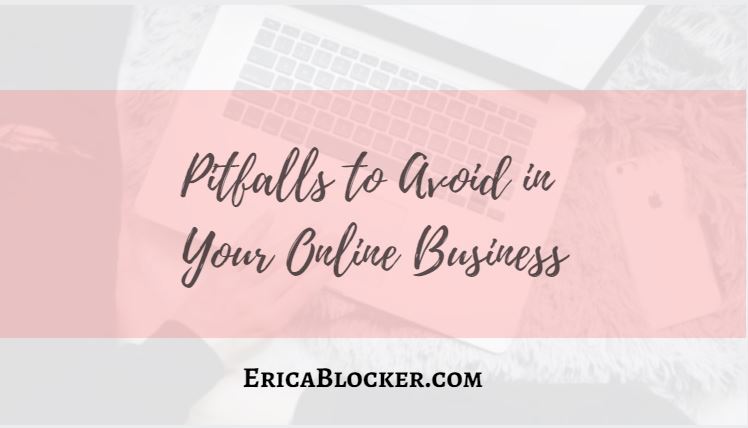There is no denying it: starting an online business is a whole lot easier than starting a physical business. Overhead costs are lower. The reach is often greater and things, in general, seem easier to manage. But that doesn’t make it a walk through the park by any means. As your online business fills needs and helps customer, you will build your credibility. These aspects of your business are the most fundamental pillars.
But that is just a delicate scratch on the surface.
Yes, going down the online route has its benefits, but the majority of those who think they can be a success fall short simply because they don’t see the pitfalls until it’s too late. They don’t understand there are tons of mistakes up for grabs until they are blessed by the frustrations of hindsight.

Not to be a modern-day martyr or anything, we have pulled together a list of super-common mistakes that you should avoid when you take the leap and become an online entrepreneur:
- Formalities for The Informal
It can be so easy to to think, “hey, technically my business isn’t a formal business so I probably don’t need a formal business plan.” Well, you’d be wrong. Having a plan is an absolute essential. The reason it is essential is because a business plan acts as a GPS that keeps you on the right track. Now you don’t need to go all out and create a thirty-one-page business plan with all the nitty-gritty details one could possibly imagine – that is archaic. However, you do need to know certain things such as: who your audience is, what you are selling, who is willing to buy your products and services, and why. This information will always be helpful, so be sure to write it down and go back to is as needed.
- Focus On The Important Bits
It’s often the little things that distract entrepreneurs. You know things like business card wording, color of your logo and what information to include on your Facebook “about us “section. That stuff is important, but it isn’t the most important of all tasks that you need to complete. The most important thing of all is launching your business so that it takes off. You need to focus on the kind of tasks that are actually going to see your business grow. Now, you may be rolling your eyes, while muttering to yourself about how this is soooo obvious, but I can almost guarantee you are still getting bogged down in all the little bits.
- Know Your Value
It doesn’t matter whether you have created a product, you’re selling a service or you are re-selling someone else’s products – you need to master the art of pricing. That means setting a price that will generate a profit without going so high that you won’t make any sales. Don’t let this be daunting. The good news is that you can tweak your pricing as you go along. The important thing to remember when starting out is to a) know the value of what you are selling and b) have the confidence to set the price at what it deserves to be.
- Too Small To Be A Target
Another huge mistake startup businesses make – especially the online variety – is thinking they are too small to be targeted by hackers, phishers or social engineers. But this is not the case. In fact, your vulnerabilities are what makes you a more attractive target. If you don’t have much knowledge about this, you can learn more here.
The point here is that you want to think about security and cybersecurity. That includes things like having complex passwords, not opening dodgy emails and not signing on to unsecured WiFi’s. It also means going the extra mile, such as using the fingerprint scanning tech on your phone as much as possible, or even facial recognition if you have it. If a big business gets hacked, it’s really bad. If your business gets hacked, it’s going to be fatal. Probably.
- Healthy Spread Of Social Media
There are so many platforms that it can be tricky to know which ones to use, which is why you have probably made a list of all of them. Facebook, LinkedIn, Instagram, Twitter, Pinterest, SnapChat and whatever else is out there. The worst thing you can do, however, is spread yourself too thin by trying to attack all of these. That’s only possible if you can hire someone full-time to manage your social media efforts.
Instead, start with the two that you think will build your brand and convert your audience best of all. If you have a product, that is likely going to be a combination of Facebook and Pinterest. If you have a service and you want to grow the personality of your brand, it is probably going to be better to go down the LinkedIn and Twitter route. Know what you are, what you want, then go for it.
- Customer Service Super Powers
The world is on the internet. Your every transaction is done on the internet. Your business is conducted over the internet and your business only exists because of the internet. It’s quite overwhelming. Still, you must make a conscious effort to focus on providing excellent customer service. People who’ve been given a great experience are more likely to return to your website and social media pages. It doesn’t necessarily matter how you interact with your customers and potentials – via phone, instant messenger, live chat, surveys, emails, comments, whatever – as long as you connect and show that you really care about providing a solution for their problems.








